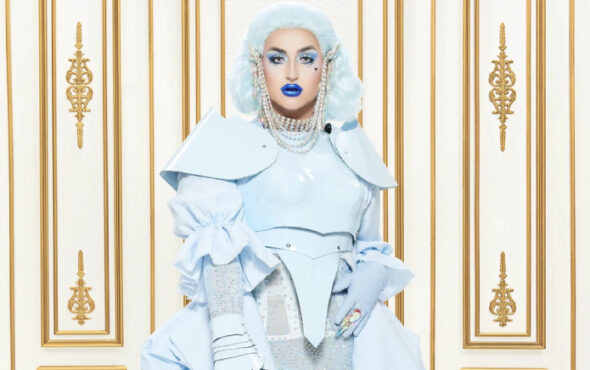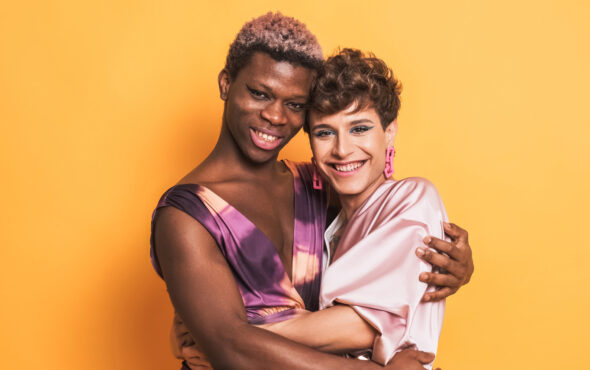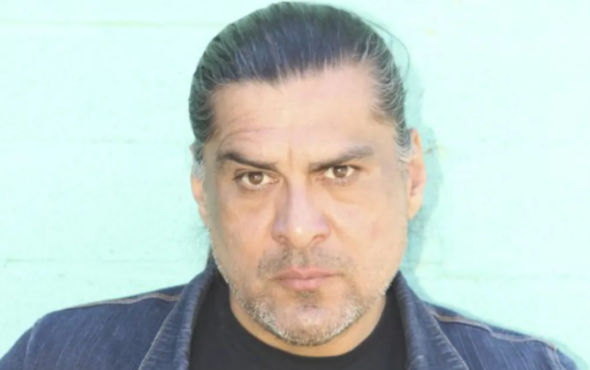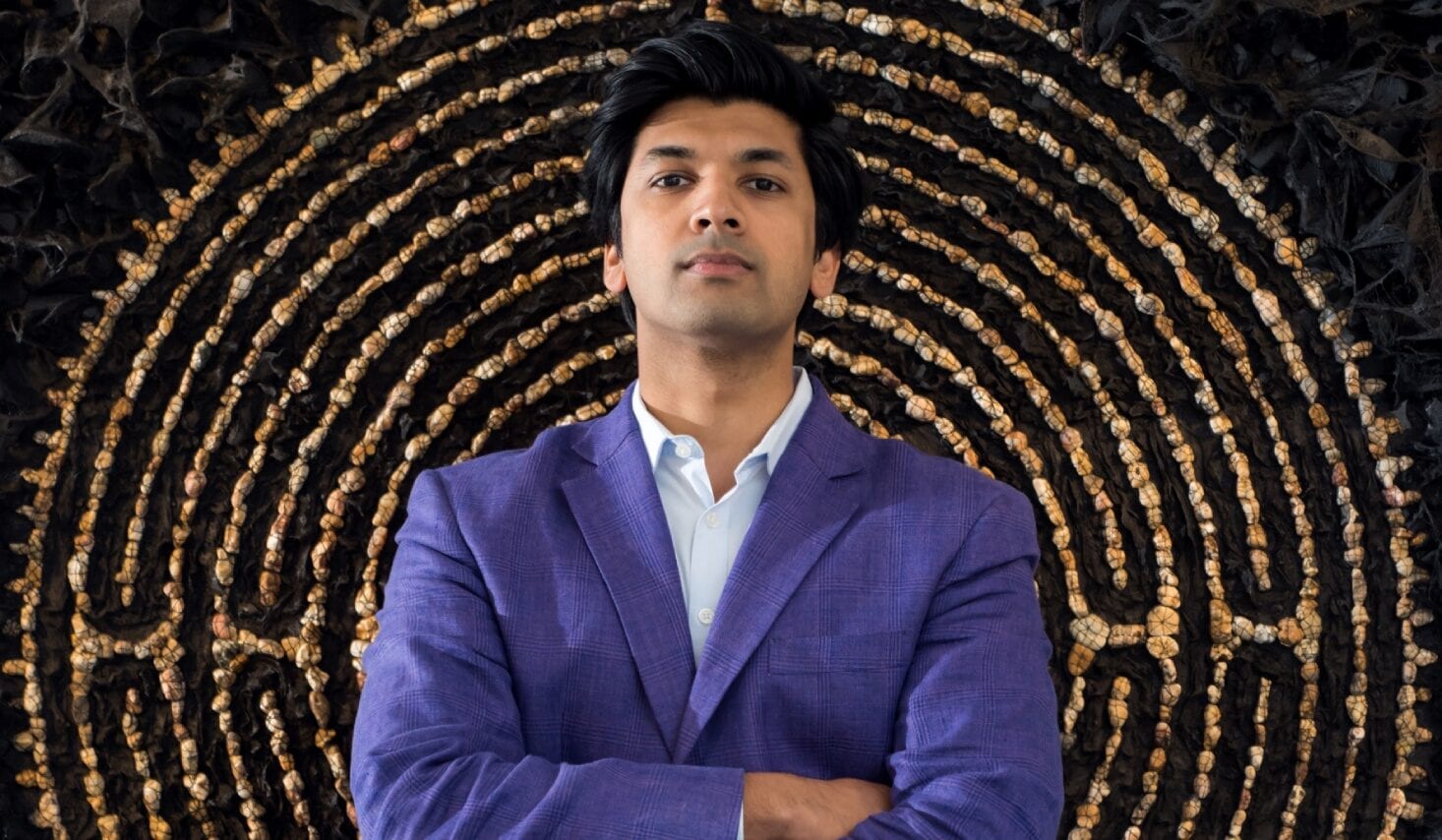
Since last sitting down with GAY TIMES in 2018, Indian royal and LGBTQ+ activist Amar Singh has played his part in helping overturning the “outrageous” Section 377 of the Indian Penal Code – which criminalised homosexual relations. The code was struck down in 2009, and reinstated in 2013, once again making homosexuality illegal. Singh, alongside others, campaigned and fought for the legalisation, finally reverting the law again in September 2018.
Things are of course still far from perfect in 2020. One of the next issues on Singh’s activism trail: LGBTQ+ conversion therapy.
“Often we focus on the positives; the accomplishments which, of course, need to be celebrated,” London-based Singh told us this week. “But the flip side is that there are still so many issues that need to be addressed.
“Yes, section 377 addressed homosexuality being illegal, and it has been struck down again; but there is still a lot left to do with regards to LGBTQ+ rights. For example, same-sex marriages are still not allowed in India and so many other countries. It is a basic human right to be able to marry the person you love and millions of people are prevented from doing this. Let that sink in.
“Equally as bad is the fact that there are only five countries in the world which have outlawed conversion therapy for children.”
Indeed, May of this year saw Germany become the fifth country to ban conversion therapy for minors, following the examples of Malta, Ecuador, Brazil and Taiwan. So that’s five countries down, 190 to go.
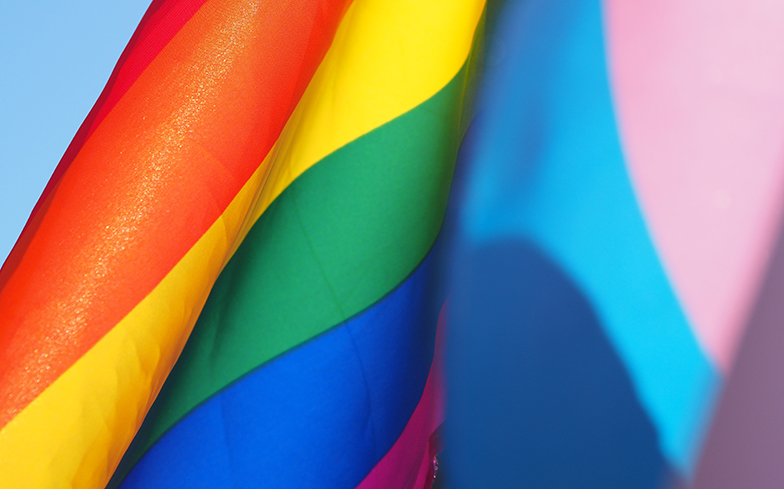
Singh despairs of the fact that even the west has failed to unanimously put this right. “Conversion therapy is criminal! There are many of us trying to criminalise something which is already criminal!” he says.
The onus behind gay conversion is that one can be “cured” of their homosexuality. And, as Stonewall puts it, “no one should be told their identity is something that can be cured”.
Some are literally sent off somewhere to have this “therapy” – something that Singh equates to being tortured, having spent time with those in India on the receiving end of such treatment. Then there’s the problem that many LGBTQ+ people are provided with inferior social and health care as a result of this attitude.
Just this week it was revealed that a workforce plan drafted by the NHS appeared to characterise LGBTQ+ employees as being disabled or suffering from a long-term condition – with NHS England subsequently issuing a grovelling apology.
“It has been only thirty years since the World Health Organisation (WHO) declassified homosexuality as a disease and – get ready for this – it’s only one year since the WHO declassified being transgender as a disorder,” says Singh. “The world is looking to the WHO to fight coronavirus, but who is fighting for equality? There urgently needs to be more global power behind this movement.”
This turns the attention to the glaringly uncomfortable fact that the UK is not on that list of countries to ban gay conversion. There’s a campaign in place, with a petition online containing over 200k signatures. “I’m one of them, of course,” Singh says, blaming the current global pandemic for interfering with yet another urgent issue.
Having hit over 100k signatures, Parliament are obliged to consider the petition; but, like so many other things, it’s in a long line, being forced to take a number and wait it’s turn amid the COVID-19 crisis.
“The UK government’s position is that progress has been delayed due to the coronavirus. How is that just?” Singh despairs. “The coronavirus has been so tragic and an enemy to so many people – certainly LGBTQ+ people. We really have to ramp things up!”
Singh is the owner of Amar Singh Gallery in London, which specialises in exhibitions by minority groups – namely women and the LGBTQ+ community.
He’s on the edge of his seat, waiting to launch a new exhibit to celebrate the abolishment of S377, but is “at the mercy of the UK government”, who were to open galleries again in recent weeks before doing a U-turn, fearing a raise in the R rate.
“I want it to be a tribute to people who lost their lives fighting for this. The ones killed for being gay. I want to look at the positive side of things – that the law was changed – but also to remind people why it had to change and what still needs to be done.”
If you look at the statistics, there are so many suicides by people who have been to conversion centres. People are being tortured, psychological or otherwise.
Singh finds inspiration from his family, which is steeped in a history of fighting for equality. His grandmother Veena Singh, who died in 2017, championed women’s rights during the British rule in India and was an ally of the county’s first Prime Minister, Jawaharlal Nehru. Singh’s ancestor, Rajkumari Amrit Kaur, set up India’s first women’s education fund, was India’s first health minister and campaigned for equality alongside Mahatma Gandhi.
Singh is also close friends with India’s openly gay Prince Manvendra Singh Gohil, whose parents asked doctors to “operate” on him to cure his homosexuality when he was a child.
“I am not trying to trivialise at all what people went through in Europe during the war but, yes, conversion therapy is like being sent to a concentration camp,” he says. “I say this to highlight how evil conversion therapy is. These centres are taking people in and telling them there is something wrong with who they are and who they love.
“In England and America they are trying to use ethical psychological practises to make people address sexuality. What a load of bollocks! It is evil! It’s trying to prevent them from being who they are.”
Singh is particularly troubled with the state of things in his native country – where he has received death threats in the past for his work as an ally.
“In countries like India,” he goes on, “people are being beaten and tortured; even if it’s psychological, they are being told that they are straight. They are not allowed back in their homes unless they change their sexuality.
“The reality is that in Africa, India – let’s not even get started on the Middle East – they physically and mentally abuse gay people at these conversion centres. These places are rife in third world countries where there is already a break down in human rights – they don’t even have that protection!
“If you look at the statistics, there are so many suicides by people who have been to conversion centres. People are being tortured, psychological or otherwise. I might be repeating myself but I don’t care, the word torture might make people uncomfortable, imagine actually going through it.”
Singh urges people to watch Boy Erased – the biographical movie based on Garrard Conley’s 2016 memoir of the same name, starring Nicole Kidman and Russell Crowe. The film recounts what happened when Conley was sent, as a child, to a Memphis conversion therapist, where he was banned from recounting the appalling methods and mind games used to “turn him straight”. The “cure” didn’t work of course – and he later shared his experiences with the world in his memoir.
“I am creating a website which will list all the countries in which being LGBTQ+ is illegal, and where conversion therapy is illegal. It will share information about how people can support people in specific regions around the world,” Singh adds, in yet another effort to help fight the good fight.
Amar Singh Gallery will reopen with its proposed exhibition when COVID-19 regulations are eased. Singh hopes his informative website will be live within the next two months.

